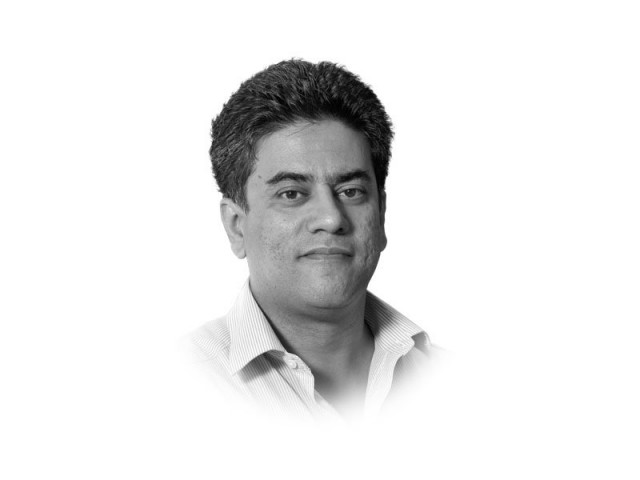Traffic and Karachi Riots
There are almost no safety precautions in place on the road

The writer is the former editor of The Express Tribune. He tweets as @tribunian
There are almost no safety precautions in place on the road and mini-buses (once called Yellow Devils) race against each other, unmindful of the dangers they pose. Most of the heavy vehicles that ply in Karachi give protection money to the traffic police and that is why in almost all instances after they kill someone, the driver and even the vehicle is released soon after.
Waiting in the midst of the chaos on University Road that day, I was reminded of the morning of April 15, 1985, the day Karachi changed for ever. Two sisters, Najma and Bushra Zaidi, travelling in a mini-bus that morning in Karachi were killed when they decided to get off near the Sir Syed Girls College bus stop because despite the bus being still in motion, the bus conductor asked the girls to hop off as the bus won’t come to a complete halt.
The bus was racing with another bus and as the two girls jumped off, they were hit by another bus that was travelling in the same lane. Najma fell and fainted but Bushra was overrun by the bus. The sisters were rushed to the nearby Abbasi Shaheed Hospital, where Najma was admitted to the hospital for medical treatment. But her 20-year-old sister, Bushra, was pronounced dead.
This was the time of Zia-ul Haq and the chief minister of Sindh was the notorious Ghaus Ali Shah, who till recently was allied to the ruling PML-N party. Passions ran high and riots erupted in the city soon after.
I am told that the Bushra Zaidi incident helped the MQM come to power in Karachi as the Urdu-speaking community was enraged at the manner in which people of other provinces ran the transport business. At the time, both the transport business and the traffic police were dominated by non-locals.
Ethnic tensions reached a fever pitch when the then Chief Minister of NWFP, Arbab Jahangir, came to “collect” the errant driver of the bus that killed Bushra Zaidi. Since then the city has never fully recovered.
Thirty-two years later, and with many changes of government and with the MQM in power for many years in between, what I see is that people are still being killed on the city roads in the same manner. The transport business and the traffic police remain monopolised by outsiders. The more things change, the more they stay the same.
The similarities do not end there. We have a leadership in place that has not bothered to visit the houses of those who were killed. No action has been taken against the drivers who killed the innocent persons. The traffic police has not been brought to account for any of this. And every day the death toll rises. Like Ghaus Ali Shah, the present Chief Minister - Murad Ali Shah, looks the other way.
It is a powder keg waiting to explode. Traffic continues to be one of Karachi’s sorest points. According to the 2014 statistics of the Road Traffic Injury Research and Prevention Centre, which collects data of road accidents from five public and private sector hospitals of the city, 24,360 accidents and 30,274 injuries were reported. Over 1,000 people (1,067 to be specific) died in traffic accidents (the number could be much higher considering the fact that the data is based on information received from hospitals that receive brought-dead cases). In 2013, 1,130 people died in road traffic accidents.
Like 1985, there is a vacuum of power in the city. The MQM has been broken up and no one faction has absolute control. Despite the advent of democracy, the city saw a representative government nearly a decade back. People are fed up with the filth, the broken promises and the frustration of living in the country’s largest city. Are we going to see a new wave of violence?
Published in The Express Tribune, February 13th, 2017.
Like Opinion & Editorial on Facebook, follow @ETOpEd on Twitter to receive all updates on all our daily pieces.















COMMENTS
Comments are moderated and generally will be posted if they are on-topic and not abusive.
For more information, please see our Comments FAQ